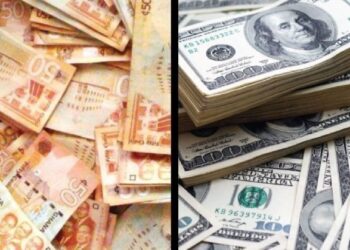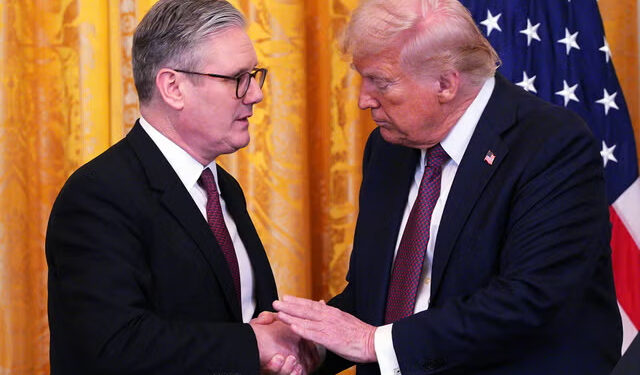Joe Jackson, the Director of Business Operations at Dalex Finance, has advised the government to be financially disciplined in the lead-up to the December 7 elections to protect the value of the Cedi.
On Wednesday, May 15, Jackson emphasized the importance of avoiding a budget deficit. He warned that failing to do so could worsen the challenges facing the Cedi and the Ghanaian economy.
“What the government needs to do at this moment is to be fiscally disciplined and spend within its budget. The government must cut down on its spending. Make sure that you don’t spend more than you promised in this election year.”
Joe Jackson
“Remember, people like Bloomberg and others do not see that this government can spend within its budget,” Joe Jackson added.
Additionally, he attributed the recent sharp decline of the Cedi against major currencies to the sudden injection of dollars into the economy during Ghana’s exclusion from international markets.
“It [The Cedi depreciation] is the lapse effect after we fell out of the international market. If we had not pumped that much money into the economy, we would not be facing this situation. The major reason is that when we pumped in deficit financing, this is the effect we are now experiencing.”
Joe Jackson
The Ghanaian Cedi has experienced a year-to-date depreciation of about 14 percent. Currently, the exchange rate is around GH¢14.90 for one US dollar, a notable increase from GH¢10.97 during the same period in May 2023.
According to Bloomberg, the Cedi’s decline is worsened by reduced cocoa earnings, with exports falling by about $500 million in January and February 2024 due to unfavorable weather conditions and swollen shoot disease affecting cocoa production.
Bloomberg’s report also highlighted that the current depreciation reflects a historic weakening trend for the Cedi, leading analysts to predict further challenges for the currency due to heightened risks related to election-year spending and delayed debt agreements.
The International Monetary Fund’s Fiscal Monitor urged governments to resist fiscal slippages and instead focus on fortifying fiscal buffers.
The report highlighted a global trend of increased public debt and fiscal deficits, exacerbated by persistent challenges such as high real interest rates and slow growth prospects.
According to the IMF report, “Empirical evidence shows that fiscal policy tends to be looser, and slippages larger, during election years,” revealing a pattern of fiscal laxity that could worsen Ghana’s economic stability.
Cedi Strength Predicted, Economy On Path of Recovery
On a more optimistic note, Fitch Ratings forecasts that the Cedi will strengthen to GH¢12.25 against the dollar by the end of 2024.
Moreover, the Minister for Finance, Dr. Mohammed Amin Adam, assured the public of a strong economic recovery.

He also highlighted that inflation has seen a notable decrease in recent months signalling that the economy is on the right path to recovery.
Speaking as the special guest of honor at the Health Sector Annual Summit 2024, Dr Adam expressed optimism that inflation would continue to decline and be significantly lower by the end of the year.
“The economy is rebounding strongly, and I can tell you as manager of the economy that our recovery is really strong. We face serious challenges, but the future is looking brighter and brighter. As a result of the policies we have implemented, economic growth has become more robust than ever anticipated. Projected to grow at 1.5% last year [2023], we grew at 2.9%.”
Dr. Mohammed Amin Adam
Amidst economic challenges, fiscal discipline is crucial. Jackson’s warning highlights the need for prudent spending to stabilize the Cedi and foster Ghana’s economic resilience, especially during election cycles.
READ ALSO: NHIA to Launch Financial Support for Dialysis Treatment on June 1




















